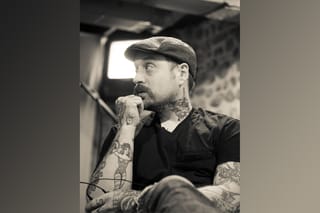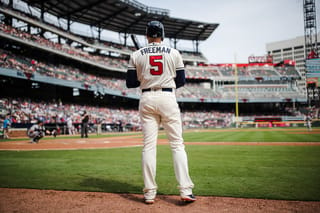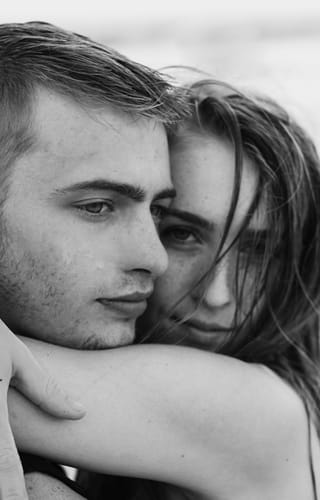
We first spoke to Atlanta Braves photographer Kevin D. Liles back in 2019 to hear about his career path, his inspirations, and what a typical day at a pro sporting event is like.
Unless you’ve been living under a rock, you’ll know that the last few years since 2019 have been anything but typical. In the midst of a tumultuous political and societal landscape, the world was brought to a sudden halt with the onset of a global pandemic. Early in the changing situation, many pro shooters found themselves without subjects to photograph and wondered what the future held for them.
For many, it seems that the worst of it may be behind us as we look forward to a return to relative normalcy. Sporting events picked back up and our pal Kevin was able to shoot his dream assignment, the World Series.
We caught up with him recently to see how it felt for that dream to come true, learn how he’s dealt with the creative struggles of the past couple of years, and to learn more about the storytelling parallels between sports photography and photojournalism.
All photos by Kevin D. Liles
It’s good to catch up with you, Kevin! Let me start off by asking you this – Can you, in fact, dig it?
Haha! Yes, I can dig it.
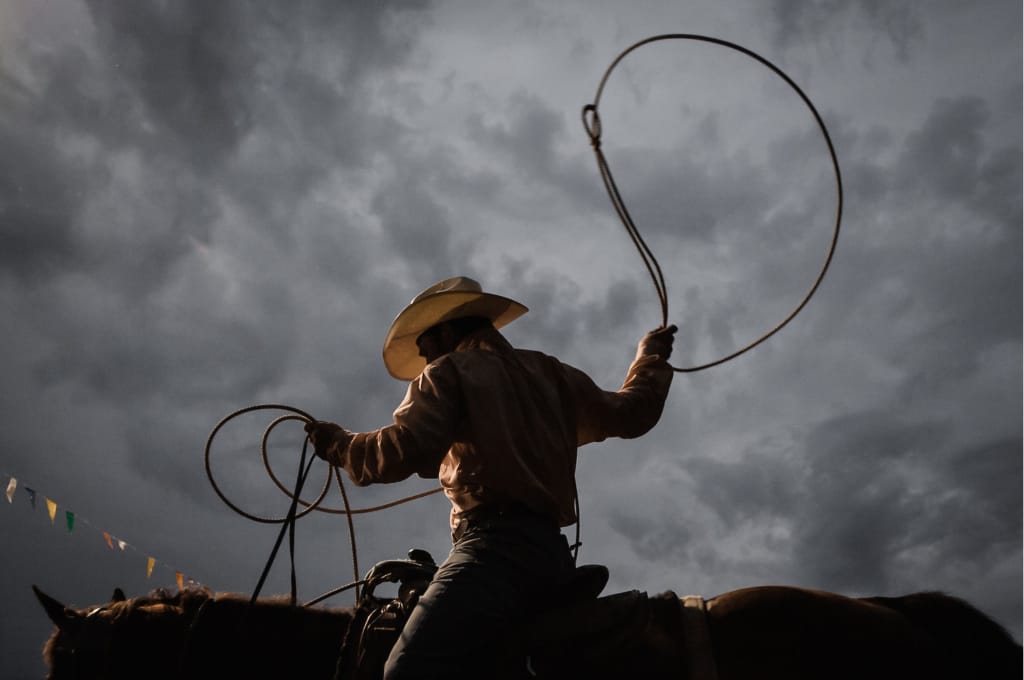
This marks the 10th year since you started as a full-time freelance photographer. As you’ve been able to achieve some of your dream assignments over the years, how has your outlook or approach changed since you’ve started?
Yes, this is my 10th year as a full-time independent photographer. I am so grateful to have made it this far. I remember when I started freelancing, I told myself that if it all goes south, I’ll just get a job. And thankfully, I’m still on my own. Since then, a lot has changed.
For starters, I’m a lot more selective about the work I take. Back in 2012, I was taking nearly every job that came in the door. I was afraid to say no to anything for fear that I would miss an opportunity. Now that things have leveled out a good bit, and with the Braves gig, my goal is to take work only if it furthers my goals or fits my vision.
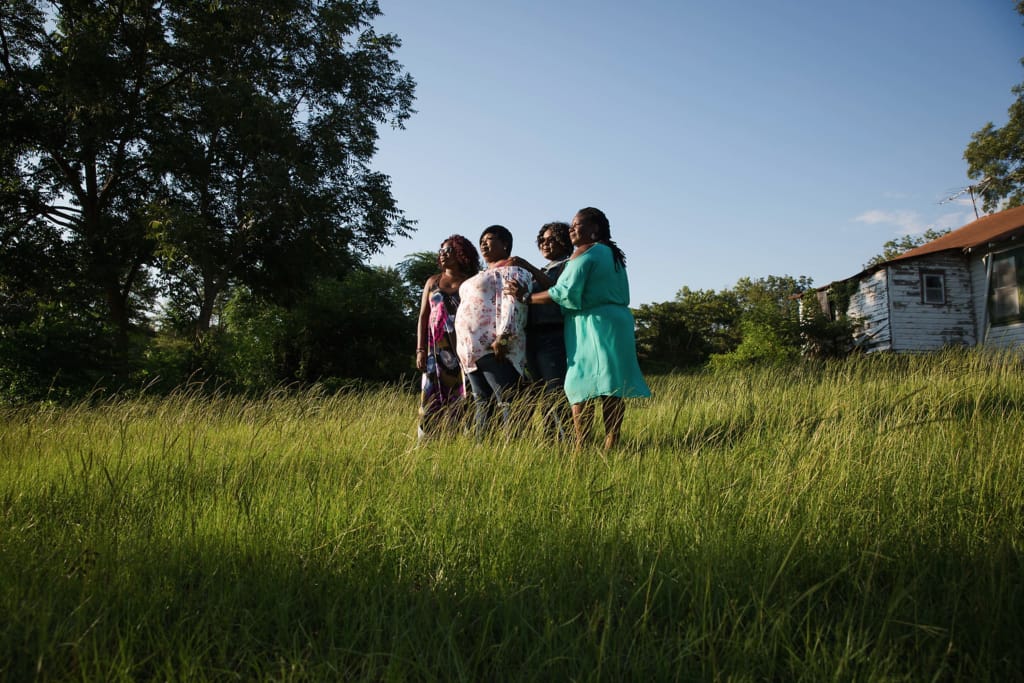
A lot of people have reported feeling burned out during the last few years; personally, professionally, and creatively. Have you struggled with this feeling in your own career and do you have any advice for others on how to get through that struggle?
I shoot nearly every Braves home game, and with 81 of them each season, I definitely know what burnout feels like. There are a couple of ways I deal with this. First, and the cheapest way, is by shooting things just for myself. Usually, that means taking a few minutes during or before a game (or other assignment) to look for some images that I want to shoot. This is something I’ve been doing since I started working as a photographer for small-town newspapers. Many of my assignments back then could be very boring or uninspiring, like a city council meeting or pet of the week. I found that if I could try to make an interesting frame no matter what the assignment was, I always got a boost of creativity. This still works for me today.
The other, more expensive option, is to use new gear. This has been especially true for Braves games for me. When looking through the same cameras at the same focal lengths day in and day out, it can really take a toll creatively. So to combat this, I’ll rent a piece of equipment — a different lens or camera — or shoot with an old film camera. It’s all about mixing it up and forcing myself to see things differently.
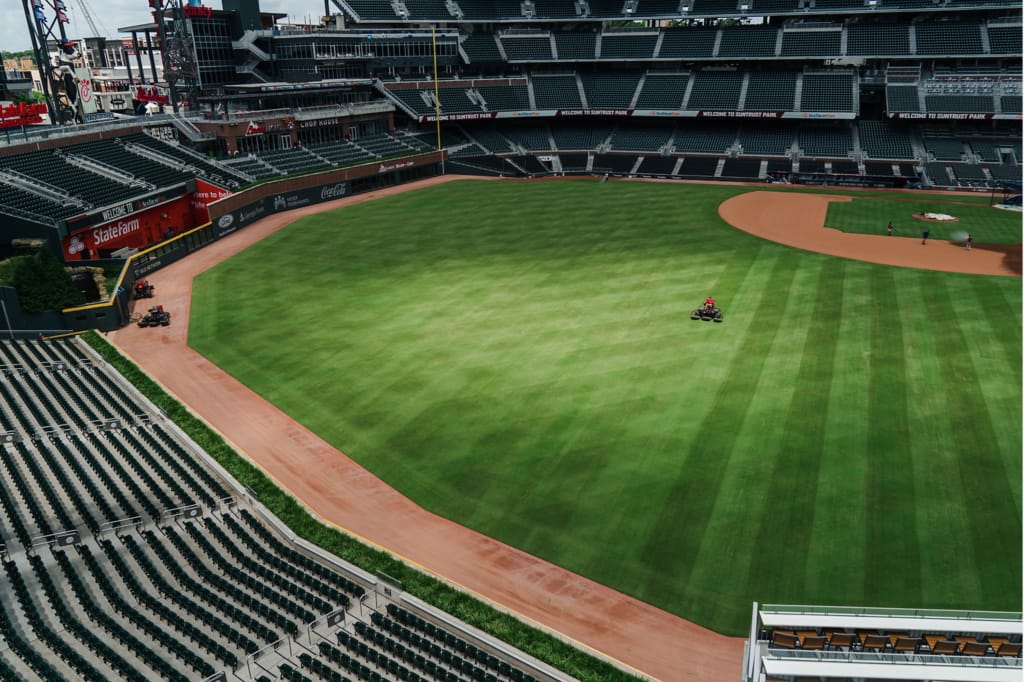
Speaking of seeing things differently – the last time we spoke was in 2019. Obviously, things changed drastically for everyone with the onset of the Coronavirus pandemic. The shutdown seemed to give us extra time to slow down, but it’s also felt as though we’ve been living through one historical event after another. How has the changing pace of the world affected you over the last few years?
It hasn’t really affected my workflow as much, but definitely has in my projects. There were several photography projects I was working on when the pandemic hit that I have yet to return to. In the middle of all of that, my wife and I had our first child (Violet, who is 15 months old now!) and we moved outside the city. So there have been a lot of life changes also contributing to the amount of time I have available for personal projects.
I do think a lot more about the historical value of the photos I take, both at Braves games (especially the 2020 season when there were no fans present) and with news assignments. One thing that I think a lot about in regards to this is ownership of images. With regards to the news in particular, images made during these historic times could have lots of value down the road in terms of licensing. So I want to make sure I own as much of the work I produce as possible. Additionally, to further that point, I want to make sure I have as much of my work publicly searchable as possible.
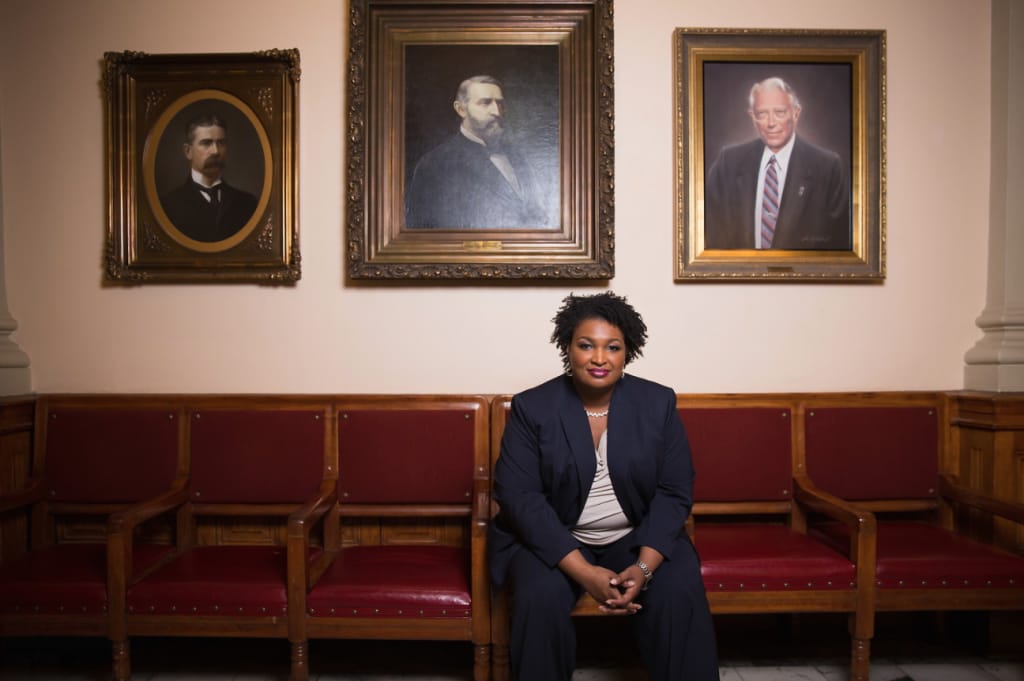
Many people lately say that the truth is more important than ever, due to the rise and global accessibility of misinformation thru social media, state-controlled media, and partisan networks. Do you think that this also rings true for photography? Is the truth more important now than ever before?
Truth should always be the goal in obtaining information, no matter what area. Obviously, the news is the arena where this probably matters most these days. In regards to photography, I think photographers knowing their rights (copyright, taking photos on public property, etc.) is the most important area where misinformation exists. I just encourage all photographers to know their rights and stand up for them.
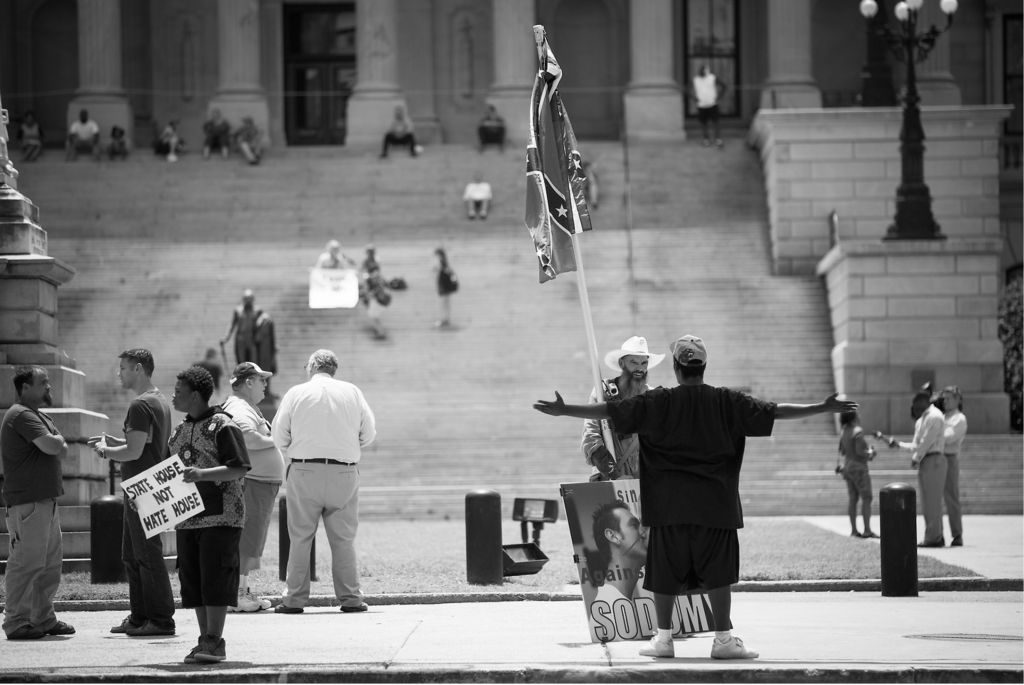
Does photography always show the truth? Do you feel that photography can be an effective tool in bringing about societal change?
No. Photography doesn’t always show the truth. Any combination of things from lens choice, composition, or exposure can change the meaning of a photograph and reveal or conceal the truth.
During the summer of 2020, while covering a large protest at the Georgia Capitol, I photographed a member of the Atlanta Police Department in full combat gear and holding an assault rifle positioned behind a concrete sign for the City of Atlanta. By looking at the photo you would think there was immediate danger all around, considering the defensive stance of the officer. But about 20 feet to the left of him were a couple of protesters just standing around. I remember that the photo didn’t really tell the truth of the scene because it wasn’t really that tense in the moment, but you could have easily felt it was by looking at the photo alone.
I agree 100% that photography can bring about societal change. One only needs to look at the iconic photo from the Vietnam War taken by AP photographer Eddie Adams. The photo, which won the Pulitzer Prize that year, shows the execution of a prisoner on the street. It ran in publications across the world and helped turn the tide of public opinion against the war.
This photo also brings up the notion of truth. Most who see this image see a cold-blooded killer. However, Adams has defended the man who pulled the trigger, Brigadier General Nguyen Ngoc Loan, as a good man who was simply doing his job. The man who was executed, Nguyen Van Lem, had allegedly killed Lt. Col. Nguyen Tuan as well as Tuan’s wife, six children and his 80-year-old mother. This photo haunted Adams through the rest of his career.
“I was getting money for showing one man killing another,” Adams said. “Two lives were destroyed, and I was getting paid for it. I was a hero.”
(Quoted from this BBC article)
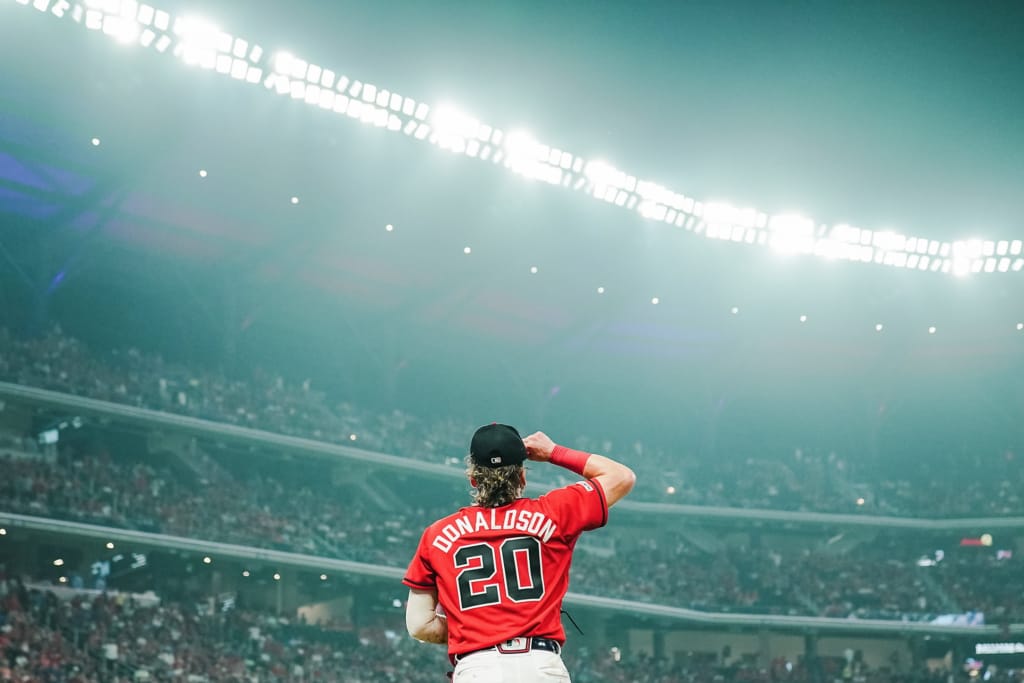
Last time we spoke, you mentioned that you were hoping to get the chance to shoot a World Series. Although the Braves didn’t quite make it happen in 2019, we did see them succeed in 2021. With the Braves as our local team, there was a lot of buzz around the office! As someone who has been part of the team for quite a while now, tell me about that moment. How much personal excitement and investment is wrapped up in that kind of assignment?
It was incredible. I’m sure you know, but I missed Game 6 of the World Series because of a positive COVID test. I watched us win the World Series from my hotel room a couple blocks away. That was a tough moment, knowing I wouldn’t be part of the celebration or be able to fly home with the trophy. But everything that led up to that moment was just amazing. Stressful and amazing.
What’s wild is how insanely tired you are by the time you make it to the World Series. You’ve been on the road for the better part of a month, so you’re either shooting a game or you’re on a flight to the next game. And each game is like a Super Bowl, so it really adds up by the time you’re in the World Series. But that’s why we do this – for the big games like this one, so you just soak up every minute of it and take it all in.
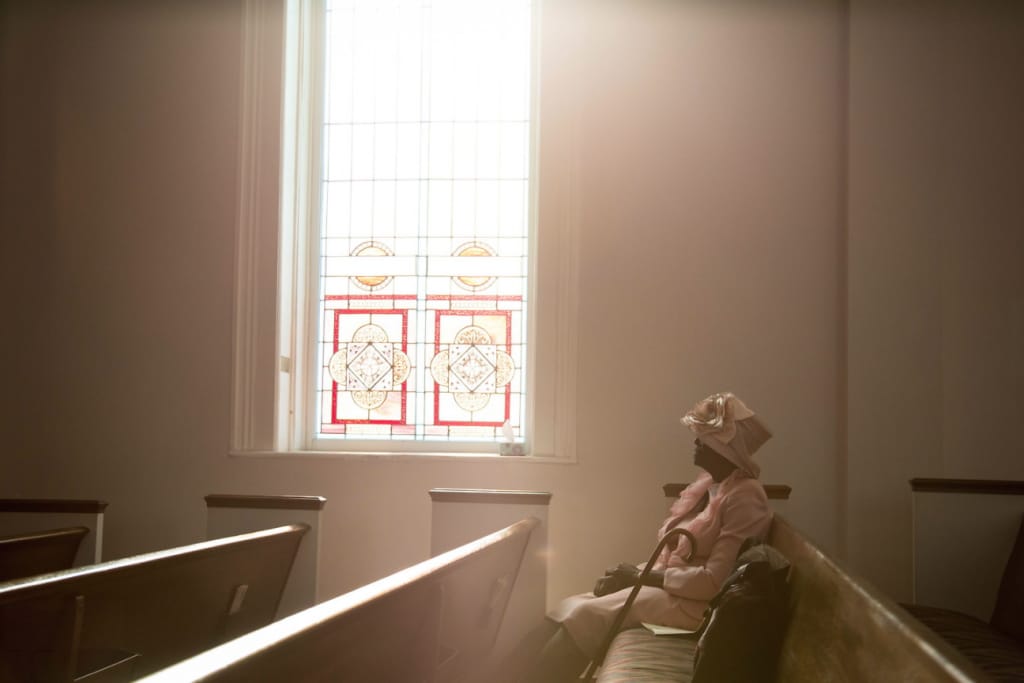
Do you think there’s a parallel between the personal connection you feel in your work for the Braves and that of other assignments you take on outside of the sports world? Your imagery and some of your assignments are so moving that it’s hard to imagine not feeling some level of personal investment in telling the story “the right way”.
Yes, no matter what I’m shooting, I have this vision that I want to tell the story. My goal is to get to the soul of it, whether it’s a baseball game, a church service, a portrait, or an Alabama game at Bryant-Denny Stadium. It’s hard to put into words what I’m trying to say with my images, but it’s just something I feel. My images are like my music. And just like a musician uses certain tones and sounds to make the listener feel the way he wants them to, I use light, expression and composition to try to elicit certain feelings.
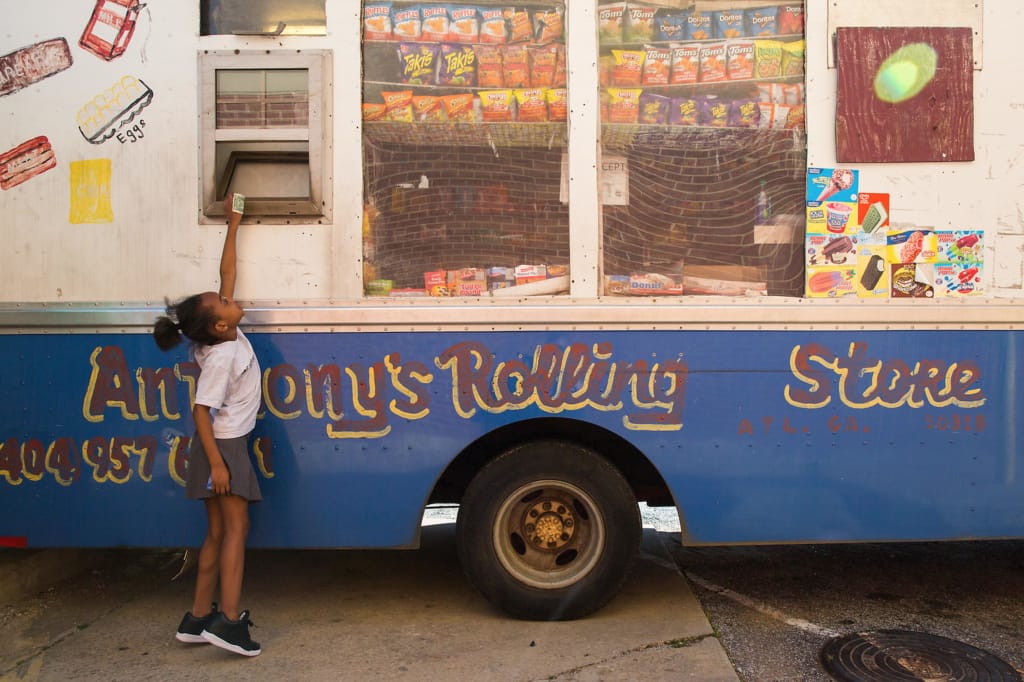
You know we have to ask – do you have your eyes on any equipment lately? What’s the next purchase going to be?
Definitely the Sony 50mm f/1.2. I rented one last year and I had forgotten how much I loved shooting with that focal length. Let me know if y’all get one!
See more of Kevin’s excellent work at kevindliles.com
Or follow him at @kevindliles

